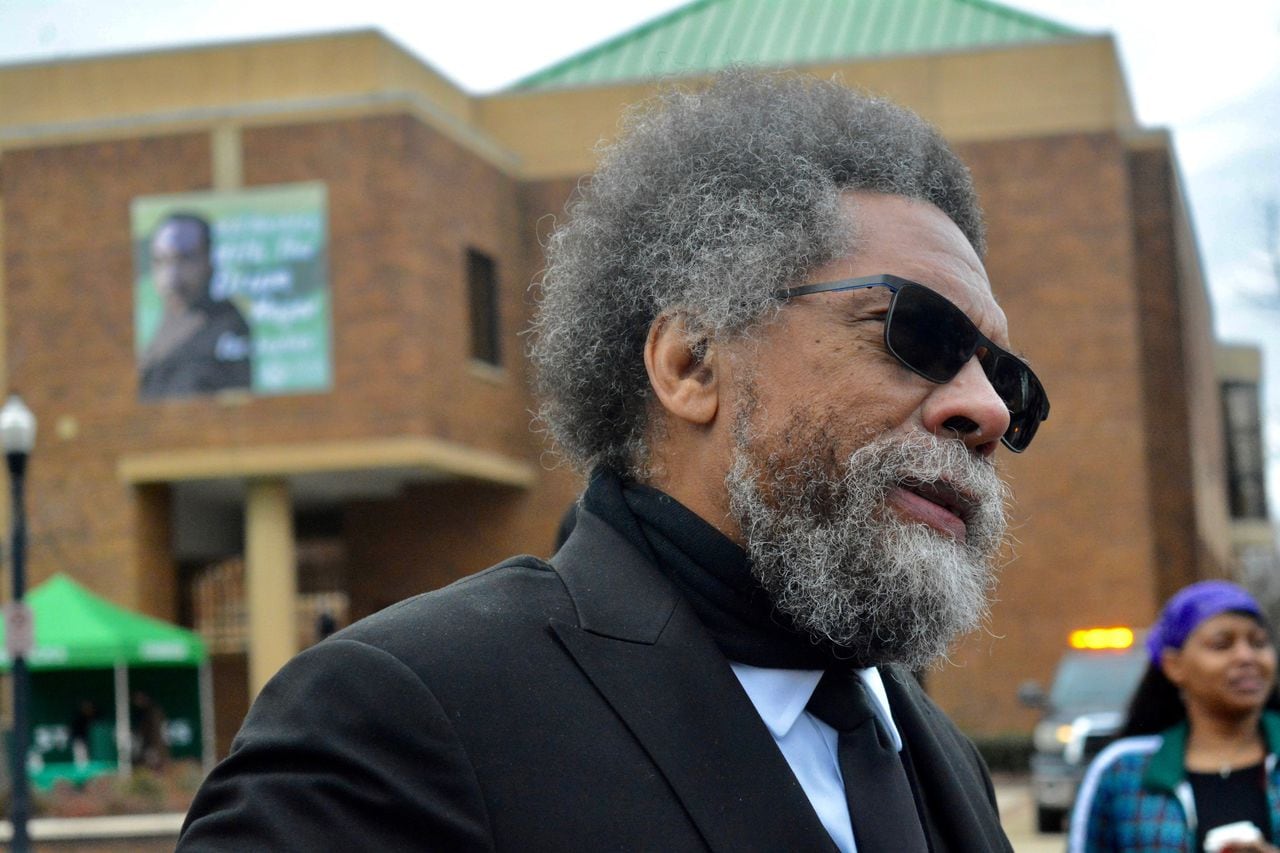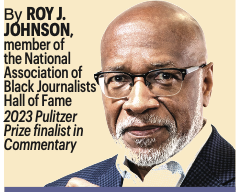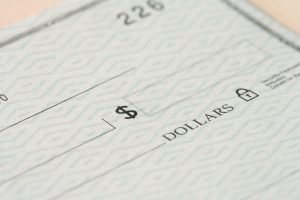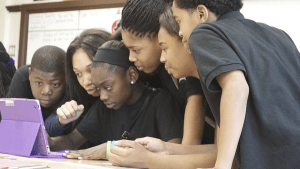
MONTGOMERY, AL – MARCH 25: Dr. Martin Luther King Jr speaking before crowd of 25,000 Selma To Montgom- ery, Alabama civil rights marchers, in front of Montgomery, Alabama state capital building. On March 25, 1965 in Montgomery, Alabama.
This is an opinion column.
Let us march on ballot boxes … until race-baiters disappear from the political arena.
Let us march on ballot boxes until the salient misdeeds of bloodthirsty mobs will be transformed into the calculated good deeds of orderly citizens.
It was a Thursday, that March 25th, 1965.
Rev. Martin Luther King and numerous other leaders had just marched more than 50 miles along Alabama’s Highway 80 into Montgomery four days after crossing the Edmund Pettus Bridge out of Selma. Safely crossing on their third—this time, bloodless attempt, protected by 1,000-plus military police and Army troops.
They marched with more than 500 Americans representing the diaspora of our nation, buoyed by thousands who joined them for the denouement.
They marched beneath death-threatening clouds, burdened by the souls of four who died—were killed—for the cause: Jimmie Lee Jackson, Rev. James Reeb, Viola Liuzzo, and Jonathan Daniels.
They marched simply for Blacks to be able to vote in the South without paying a poll tax or passing a silly, unanswerable quiz. Without being blocked by fear.
I don’t claim to be a King scholar. Yet on that day nearly 59 years ago, he stood before 25,000 on the steps of our state capitol and delivered, in my view, one of his most potent discourses. One that stands as pertinent today as it was on that Thursday.
It’s an easy each year at this time, as we rightfully paise to celebrate and give thanks for King’s life and legacy, to regale the dream.
To recite and recount his defining speech, delivered almost two years before that day in Montgomery. (All of it, not just the content-of-their-character part some conveniently quote to soothe their discomfort, assuage their guilt, or wrongly argue that King wouldn’t be just as mad and frustrated as hell today as was then.)
Yet this year, as we step with dread into the most critical election season of our lifetime—I don’t care how old you are—the words King declared that day at the Capitol, where he was to deliver a petition to Gov. George Wallace, are poignant and prescient.
Let us march on ballot boxes until the Wallaces of our nation tremble away in silence.
Historians call that speech, “Our God is Marching On.” (Read it here, or listen to it here.)
In just under 30 minutes, King delivered a litany of erudite prose. Most interestingly, he dissected the roots and reasonings behind the birth of Jim Crow; it was fueled by the burgeoning success of the Populist Movement that was forging a coalition between poor whites and Blacks around their shared barriers to wealth.
(In short, Jim Crow was conceived to persuade poor whites that at least they weren’t Black; call it the birth of white supremacy.)
“It may be said of the Reconstruction era,” King said on that Thursday, “that the southern aristocracy took the world and gave the poor white man Jim Crow. … And when his wrinkled stomach cried out for the food that his empty pockets could not provide, he ate Jim Crow, a psychological bird that told him that no matter how bad off he was, at least he was a white man, better than the black man.”
Five months after that day, President Lyndon B. Johnson signed the Voting Rights Act of 1965, which outlawed the vestiges of race-based disenfranchisement and required shady districts (read: in the South) to obtain “preclearance” from the courts before instituting new elections practices. (Which is under assault today.)
Ten months from now, we’re going to elect the next president of the United States. We’ll have a clear, and unequivocal choice—no, I’m not going to tell you whom you should vote for. That’s not my purpose here.
We’ll have a clear, and unequivocal choice; To vote or not vote.
And that’s what scares me.
It particularly scares me that we, African Americans, won’t vote.
According to Statista, Black voter turnout in 2020 was 58.7% among eligible Black voters, slightly higher than 2016 (55.9%), yet lower than 2008 (60.8%, the Obama bump) and 2012 (62%). Before then, it hovered in the fifty-percentage-point range going back to the sixties.
This year, we’ve got to do better.
I’m of the generation raised to believe that voting is more than a right—earned with the blood, sweat, and souls/soles—of our fathers, mothers, aunts, uncles, and allies.
It’s an obligation.
That’s why I can’t remember an election I missed. And not just a presidential election. If the polls were open, I was there.
Let us march on ballot boxes until we send to our city councils, state legislatures, and the United States Congress, men (sigh, MLK’s sexism was a reflection of the times) who will not fear to do justly, love mercy, and walk humbly with thy God.
Dr. Cornel West, professor emeritus at Princetown University, was in Birmingham Monday for a flurry of appearances commemorating King. In a brief morning conversation at Kelly Ingram Park, he called people not voting “a knee-jerk reaction—deep frustration with a deep sense that the corruption in the system is such that voting doesn’t matter. That’s not true; voting does matter.

“But it is true that the system is corrupt. So you have to be jazz-like enough, flexible and improvisational enough to accept the truth of just how corrupt the system is, but also say you’ve got to work both within and without. … [T]he system is broken, there’s no doubt about it. But you shouldn’t use [that] as an excuse not to participate.”
I fear we won’t march to the ballot boxes—that a simmering undercurrent of belief that neither Republicans nor Democrats are addressing our concerns, needs, and desires, well, I’ll just stay home.
Please don’t.
Not this year. Not ever. Don’t disenfranchise ourselves.
Not when efforts to diffuse and diminish our vote in recent years have been as blatant as climate change (obvious to all but those who choose to dwell in a cave of obtusity). Those efforts have reached the U.S. Supreme Court, which confirmed Alabama’s obvious attempt to dilute Black voting power in the state.
Not when our history is being denigrated and obliterated by politicians who either don’t know it (see: Nikki Haley) or fear that their children will know the full breadth of this nation’s journey.
Not when our best and brightest Black women are under attack, some subtly, others not so much.
Not when DEI is under siege from persons who fear that if the room is diverse, equitable, and inclusive they’ll no longer be the smartest person at the table. Or maybe no longer even qualified to be in the room.
Maybe the urgency of voting, the power of our ballot was not sufficiently passed on, not sufficiently by my generation and the next—like untold family histories.
Maybe the sacrifices—of King and far too many others—now evoke shrugs, sadly.
Shrugs that dissolve into complacency. To staying home.
Not voting is voting. Don’t disenfranchise ourselves.
Let us march on ballot boxes until brotherhood becomes more than a meaningless word in an opening prayer, but the order of the day on every legislative agenda.











